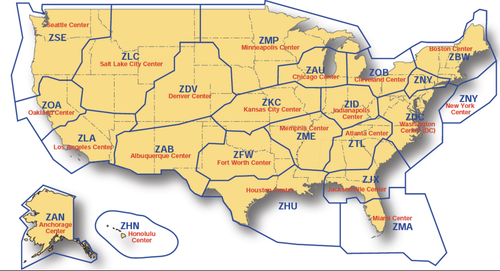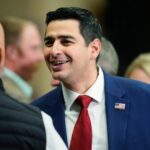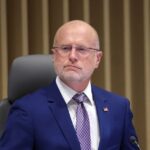
Last week, Transportation secretary Pete Buttigieg warned airlines that they faced federal government action—presumably including fines—over mounting flight cancellations and delays. While pilot shortages won't be quickly resolved, Buttigieg urged airlines to hire more customer service representatives to help customers rebook when things go wrong.
On Friday, the airline industry group Airlines for America (A4A) turned the tables, saying the Federal Aviation Administration's own understaffing is "crippling" East Coast air traffic. The group's members include American Airlines, Delta, United, Southwest, JetBlue and Alaska Airlines as well as shippers FedEx and UPS.
"One of our A4A member carriers estimates that air traffic control (ATC) related issues were a factor in at least one-third of recent cancellations," the letter said. The group asked Buttigieg to arrange a meeting in which the FAA would share its controller staffing plan for the July 4th weekend and the rest of the summer travel season.
In a diplomatically-worded letter to Buttigieg, Airlines for America called out air traffic control shortages at two key FAA facilities:
- New York Terminal Radar Approach Control (TRACON N-90). Located in Westbury, Long Island, this facility acts a single hub controlling approaches to JFK, Newark and LaGuardia airports, along with dozens of smaller airports, including Teterboro and Long Island MacArthur.
- Jacksonville Center (JAX). This Jacksonville, Florida facility controls 160,000 square miles of airspace parts of Florida, Georgia, Alabama and the Carolinas—including airspace over 225 civilian and 20 military airports.
The two-page letter notes that "JAX has been understaffed for 27 of the last 30 days, which is crippling to the entire east coast traffic flows."

Buttigieg's earlier shot across the industry's bow came after his own flight was cancelled, forcing him to drive from Washington to New York. Fittingly, the cancellation happened on the day after Buttigieg met with airline executives.
"That is happening to a lot of people, and that is exactly why we are paying close attention here to what can be done and how to make sure that the airlines are delivering," Buttigieg told the Associated Press. Approximately 2,800 U.S. flights were cancelled over Memorial Day weekend, and now July 4th looms large.
Airlines for America identified other opportunities to reduce pressure on the nation's air traffic system, including:
- The establishment of "a real-time, dynamic scheduling and management tool of special activity airspace used by the Department of Defense (DoD) to optimize the use of the national airspace system for all stakeholders"
- "Reduction of airspace closures due to commercial space launches and more optimal scheduling of such events to avoid high-volume air traffic times"
The group also noted that U.S. air carriers reduced their planned summer flights by 15% compared to what they'd targeted at the beginning of 2022, and have "accelerated robust hiring and training programs in all areas, including flight crew, customer service agents and airport staff in addition to increasing pay for many positions."
On Friday, the Air Line Pilots Association announced its approval of a new contract that would hike the pay of United Airlines pilots by more than 14% over the next year and a half, seemingly paving the way for similarly-large pay-hikes at competing carriers.
As we've previously reported, a pilot shortage is a major factor in the deluge of flight cancellations and delays. As United CEO Scott Kirby told investors,
"The pilot shortage for the industry is real, and most airlines are simply not going to be able to realize their capacity plans because there simply aren't enough pilots, at least not for the next five-plus years.”
We've also noted that an exorbitant training requirement imposed by Congress in 2010 as a knee-jerk reaction to a 2009 plane crash is needlessly contributing to the pilot shortage.
Last week, Transportation secretary Pete Buttigieg warned airlines that they faced federal government action—presumably including fines—over mounting flight cancellations and delays. While pilot shortages won’t be quickly resolved, Buttigieg urged airlines to hire more customer service representatives to help customers rebook when things go wrong.
On Friday, the airline industry group Airlines for America (A4A) turned the tables, saying the Federal Aviation Administration’s own understaffing is “crippling” East Coast air traffic. The group’s members include American Airlines, Delta, United, Southwest, JetBlue and Alaska Airlines as well as shippers FedEx and UPS.
“One of our A4A member carriers estimates that air traffic control (ATC) related issues were a factor in at least one-third of recent cancellations,” the letter said. The group asked Buttigieg to arrange a meeting in which the FAA would share its controller staffing plan for the July 4th weekend and the rest of the summer travel season.
In a diplomatically-worded letter to Buttigieg, Airlines for America called out air traffic control shortages at two key FAA facilities:
- New York Terminal Radar Approach Control (TRACON N-90). Located in Westbury, Long Island, this facility acts a single hub controlling approaches to JFK, Newark and LaGuardia airports, along with dozens of smaller airports, including Teterboro and Long Island MacArthur.
- Jacksonville Center (JAX). This Jacksonville, Florida facility controls 160,000 square miles of airspace parts of Florida, Georgia, Alabama and the Carolinas—including airspace over 225 civilian and 20 military airports.
The two-page letter notes that “JAX has been understaffed for 27 of the last 30 days, which is crippling to the entire east coast traffic flows.”

Buttigieg’s earlier shot across the industry’s bow came after his own flight was cancelled, forcing him to drive from Washington to New York. Fittingly, the cancellation happened on the day after Buttigieg met with airline executives.
“That is happening to a lot of people, and that is exactly why we are paying close attention here to what can be done and how to make sure that the airlines are delivering,” Buttigieg told the Associated Press. Approximately 2,800 U.S. flights were cancelled over Memorial Day weekend, and now July 4th looms large.
Airlines for America identified other opportunities to reduce pressure on the nation’s air traffic system, including:
- The establishment of “a real-time, dynamic scheduling and management tool of special activity airspace used by the Department of Defense (DoD) to optimize the use of the national airspace system for all stakeholders”
- “Reduction of airspace closures due to commercial space launches and more optimal scheduling of such events to avoid high-volume air traffic times”
The group also noted that U.S. air carriers reduced their planned summer flights by 15% compared to what they’d targeted at the beginning of 2022, and have “accelerated robust hiring and training programs in all areas, including flight crew, customer service agents and airport staff in addition to increasing pay for many positions.”
On Friday, the Air Line Pilots Association announced its approval of a new contract that would hike the pay of United Airlines pilots by more than 14% over the next year and a half, seemingly paving the way for similarly-large pay-hikes at competing carriers.
As we’ve previously reported, a pilot shortage is a major factor in the deluge of flight cancellations and delays. As United CEO Scott Kirby told investors,
“The pilot shortage for the industry is real, and most airlines are simply not going to be able to realize their capacity plans because there simply aren’t enough pilots, at least not for the next five-plus years.”
We’ve also noted that an exorbitant training requirement imposed by Congress in 2010 as a knee-jerk reaction to a 2009 plane crash is needlessly contributing to the pilot shortage.






